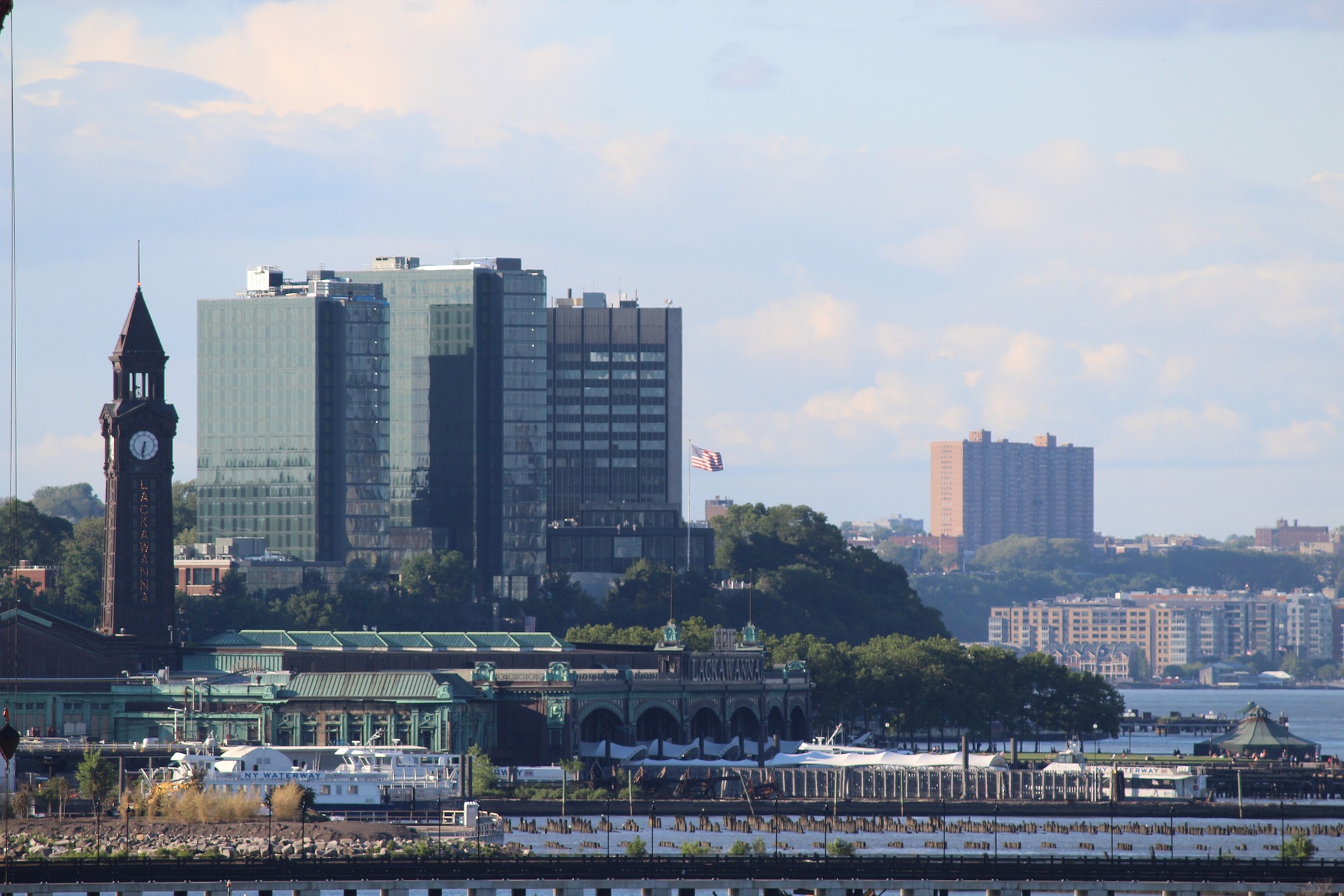Transportation policies enacted in Hoboken, N.J. over the past several years are paying off in the form of fewer pedestrian deaths and injuries.
The city has adopted daylighting, bike lanes, lower speed limits, and intersection redesigns to make its roads safer. The citywide speed limit was reduced to 20 miles per hour. Crosswalks have been painted and repaved to make it easier for drivers to see them. More than 40 curb extensions have been installed to direct cars farther from intersections. Bike lanes now grace about half of Hoboken’s roads.
The mayor says that a bucket of paint enables the city to create a curb extension and high visibility crosswalks to realize a much safer environment at a modest cost. The measures taken by Hoboken have resulted in no traffic death since January 2017, with injuries falling 41%. This safer environment occurred while pedestrian deaths in the U.S. reach 40-year highs.
Daylighting, implementing measures that prevent cars parking at the corner of an intersection, has been a key strategy. This initiative was realized with bump outs—extensions of sidewalks or the creation of small rain gardens in lieu of additional pavement, or the addition of bike racks or bollards.
Related Stories
Codes and Standards | May 18, 2017
AIA releases updated edition of its A201 flagship documents
These core documents are updated once a decade.
Codes and Standards | May 16, 2017
Trump’s proposed corporate tax rate changes said to stifle funding for affordable housing
Banks reluctant to commit to specific deals with tax credit status uncertain.
Codes and Standards | May 15, 2017
New IoT-Ready Alliance to establish standard for IoT sensors in LED light fixtures
It aims to make installation of technology easier.
Codes and Standards | May 10, 2017
OSHA increases penalties on South Dakota contractor after fatal building collapse
Agency issues over $300,000 in fines for ‘willful’ safety violations.
Codes and Standards | May 9, 2017
Potential shade on Boston Common from proposed high-rise raises public ire
The Mayor is among those who want to change 1990s anti-shadow law.
Codes and Standards | May 9, 2017
Method of estimating amount of CO2 by building occupants may be inaccurate
New research suggests current estimates may be off by as much as 25%.
Codes and Standards | May 8, 2017
National Fenestration Rating Council’s new U-factor standard open for public comment
Member-approved ballot change to NFRC 100 comments to close on May 28.
Codes and Standards | May 4, 2017
Millennials’ views on sustainability could influence the workplace
Nine out of ten say it is important that they work for a company committed to sustainability.
Codes and Standards | May 3, 2017
New York State extends design-build authority
The legislation includes eight additional projects.
Codes and Standards | May 2, 2017
U.S. announces preliminary tariffs on Canadian softwood lumber
The rates range from 3% to 24% per producer.

















